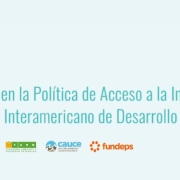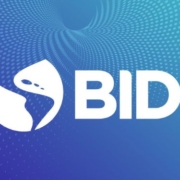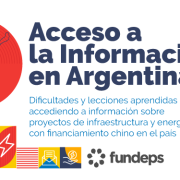The responsibility of accountability mechanisms to protect human rights: ICIM Case
The ICIM, accountability mechanism of the IDB and IDB Invest, on the occasion of increased reprisals towards applicants, has worked to improve the capacity of its team in dealing with these situations. Consequently, it has developed a series of Guidelines to address the risk of reprisals in the management of applications that will take effect in 2020.
“Below, we offer a google translate version of the original article in Spanish. This translation may not be accurate but serves as a general presentation of the article. For more accurate information, please switch to the Spanish version of the website. In addition, feel free to directly contact in English the person mentioned at the bottom of this article with regards to this topic”.
The IDB and the IDB Invest have an accountability mechanism (IAMs), the Independent Consultation and Investigation Mechanism, better known as ICIM.
The accountability mechanisms have been created by the IFIs so that communities can file claims against possible damages that have been caused by the investments that banks make and, therefore, that are not complying with environmental, social standards and transparency according to which the institutions carry out their work. The characteristics of this type of mechanisms are adapted to the UN Guiding Principles on Business and Human Rights, specifically its pillar 3 of access to reparation mechanisms by victims.
However, it has been frequently observed that applicants who file complaints in the ICIM suffer from reprisals, manifested in various ways. This does not cease to endanger the life of the applicants, who in most cases are environmental and / or human rights defenders. In 2018, the mechanism observed an increase in cases where confidentiality is requested for fear of reprisals or acts of intimidation towards the communities in which the Bank-financed project is being developed.
For this reason, the ICIM developed the toolkit ‘Guide for IAMs on measures to address the risk of retaliation in claims management’. This guide aims to assess the level of risk that would involve the intervention of a mechanism and what are the ways to prevent, mitigate, reduce or address it. In both sections, the document provides tools to guide the mechanisms and their respective institutions on what steps should be taken to address these situations.
In Latin America, environmental and human rights defenders suffer constant violations of their rights. For this reason, and in order for financial institutions to become more aware of this problem, the mechanism met with the office of the UN High Commissioner for Human Rights. The central conclusion of this meeting was to ratify the centrality that human rights should occupy in financing for sustainable development. As a result, the ICIM, starting in 2020, will have the ‘Guidelines to address the risk of retaliation in the management of applications’.
The Guidelines have been created so that applicants, given the risk of reprisals before or after making a complaint before the mechanism, can effectively apply the MICI-IDB and MICI-IIC Policies. They constitute a tool to implement in regions or areas where there is simply the risk of retaliation.
The Guidelines will be used according to factors that create, increase or aggravate the risk of retaliation by applicants before the Mechanism; It is also intended to work with applicants to reduce and address the risk factors that are identified.
The guidelines document addresses the principles for case management where retaliation risk is detected. Some of these principles are:
- Zero tolerance for retaliation,
- Participatory and continuous risk assessment;
- Action without damage;
Honesty and transparency about the ICIM mandate on reprisals.
The guidelines should serve as a guide to train the entire work team in Retaliation Risk Management, disseminate the guidelines and provide training to other IDB Group units. In addition, it makes the document available for any institution to use, provided they do not alter its content.
Finally, the guidelines will have to be shared with applicants at the registration stage to analyze the existence of retaliation risk. If so, an ICIM team must prepare a Retaliation Risk Analysis (ARR). According to the level of risk identified in the analysis, the Mechanism team will develop a Joint Plan to reduce retaliation risk (PCRR) that may establish prevention or mitigation measures.
If these guidelines are applied correctly, it would mean an advance in the protection of environmental and human rights defenders, as well as communities, who make claims due to the negative social and environmental impacts of projects financed by international financial institutions.
More information
- Independent Consultation and Research Mechanism – ICIM
- Brochure: The Independent Consultation and Research Mechanism (ICIM) – Fundeps (2015)
Author
Sofia Brocanelli
Contact
Gonzalo Roza, gon.roza@fundeps.org






